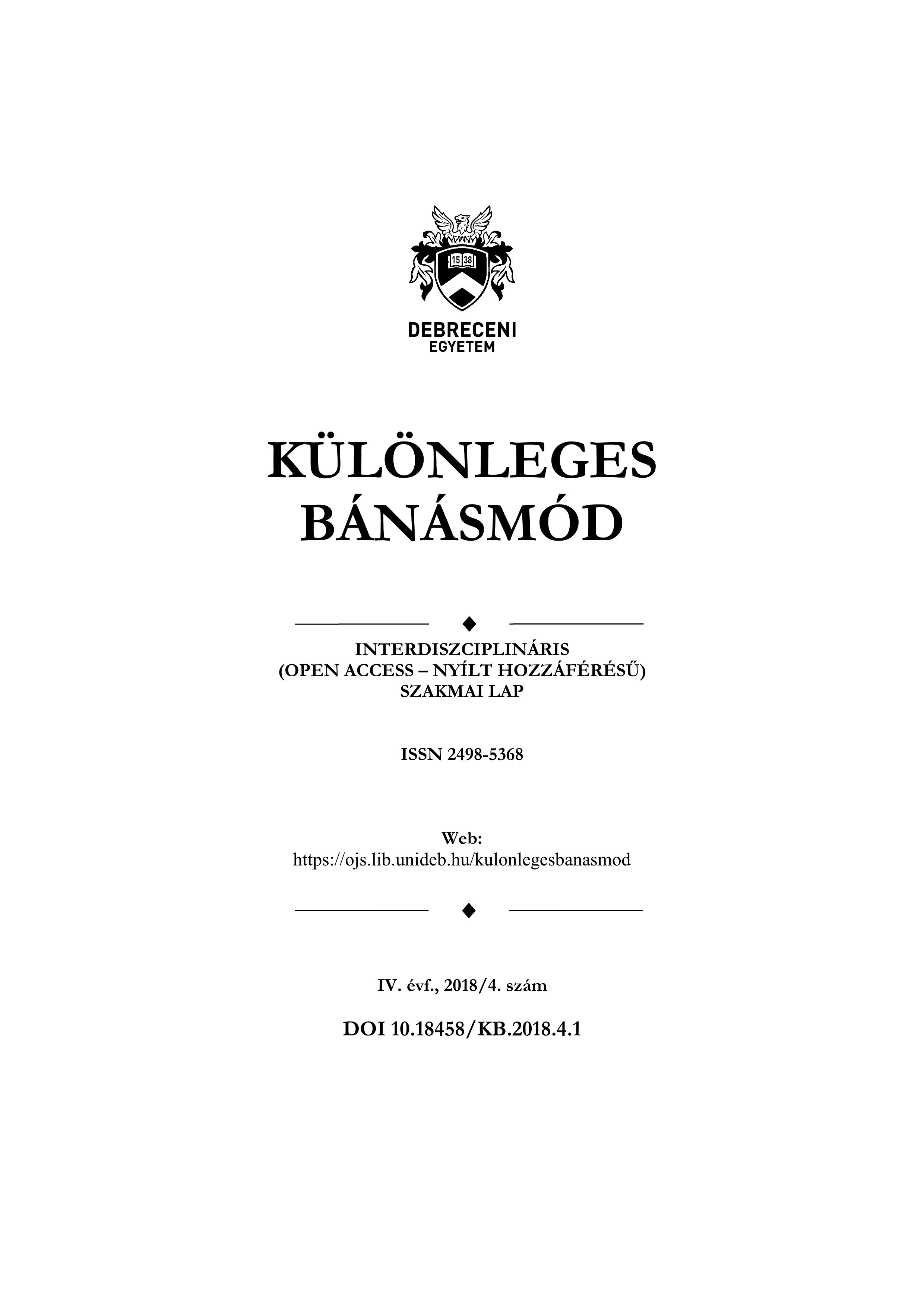A SZOCIOÖKONÓMIAI HÁTTÉRVÁLTOZÓK SZEREPE A NETFIT MÉRÉSBEN
Szerzők
Megtekintés
Kulcsszavak
Licenc
Copyright (c) 2018 Zsuzsa Nagy, Nóra Laoues-Czimbalmos, Anetta Müller (Ph.D.)

This work is licensed under a Creative Commons Attribution-NonCommercial-NoDerivatives 4.0 International License.
Hogyan hivatkozzuk
Absztrakt
A testalkati mutatók és a motoros képességek felmérése a magyar Nemzeti Egységes Tanulói Fittség Tesztet (továbbiakban: NETFIT) a köznevelésbe kötelezően 2013/14-es tanévtől vezették be, melynek célja, hogy a mindennapos testnevelés hatásait tudja kimutatni, a tanulók fittségi és testalkati paramétereiben. A tesztek országos eredményeinek bemutatásánál az is kiderül, hogy a fittségi állapotot meghatározzák a genetikai adottságok, a családi háttér és a környezet is (Csányi et. al., 2015, Csányi és Kaj 2017), így az eredményeket ezen tényezők közös kontextusában lehet értelmezni. Kutatásunkban célunk volt megvizsgálni a budapesti középiskolás fiú tanulók NETFIT adatait a családi háttérvizsgálatokkal kiegészítve. Kutatásunk során arra kerestük a választ, hogy hogyan alakul a Budapesti Műszaki Szakképzési Centrumban tanuló fiúk fittségi profilja a NETFIT próbákban mutatott eredmények alapján. Milyen összefüggés van a családi háttér és a NETFIT mérésen nyújtott teljesítmény között? Felmérésünket a Budapesti Műszaki Szakképzési Centrum egyik legnagyobb iskolájában végeztük a Budapesti Műszaki Szakképzési Centrum Újpesti Két Tanítási Nyelvű Műszaki Szakgimnáziuma és Szakközépiskolájában. Összesen 342 fő fiú tanulót vontunk be a vizsgálatba, ahol egy 35 kérdésből álló kérdőív segítségével kísérletet tettünk a NETFIT eredmények és a szocioökonómiai háttérmutatók összefüggéseinek feltárására. Számos kutatás igazolja, hogy a kedvezőbb SES-sel rendelkező tanulói csoportok, általában kedvezőbb fittségi mutatókkal rendelkeznek (Jiménez-Pavon és tsai, 2010, Ortega és tsai, 2013, Vandendriessche és tsai., 2012). Arra is számos bizonyíték áll rendelkezésre, hogy az országon belül kimutatható regionális szintű fittségiállapot-mutatók magasabbak a kedvezőbb SES-sel rendelkező régiókban (Charlton és tsai, 2014, Golle és tsai, 2014, Cleland és tsai, 2009, Welk, Saint-Maurice és Csányi, 2015). Kutatásunk során megállapítottuk, hogy a fejlesztésre szoruló tanulók leginkább a kisközségekből kerülnek ki, mintegy 58,3%-uk szorul fejlesztésre. Ezek az értékek szignifikánsan eltérnek (khi=218,6, df=20, p=0,000). Az életmód kialakításának alappillére a család (Mező 2018), amelynek szokásai, alakítják a gyermek sporthoz való viszonyát, s később igen nehéz azokat megváltoztatni (Herpainé et. al, 2017, Herpainé 2018). A vizsgálat bizonyította, hogy az adott mintán a vizsgált fiú tanulóknál az apa sportolási szokása döntően meghatározó, azonban az anya sportolási szokása nincs akkora hatással a vizsgált személyek sportolási szokására. Javaslatot teszünk a NETFIT teszt battériájának kiterjesztésére a vizsgált személy szocioökonómiai háttérvizsgálatával.


 https://doi.org/10.18458/KB.2018.4.33
https://doi.org/10.18458/KB.2018.4.33